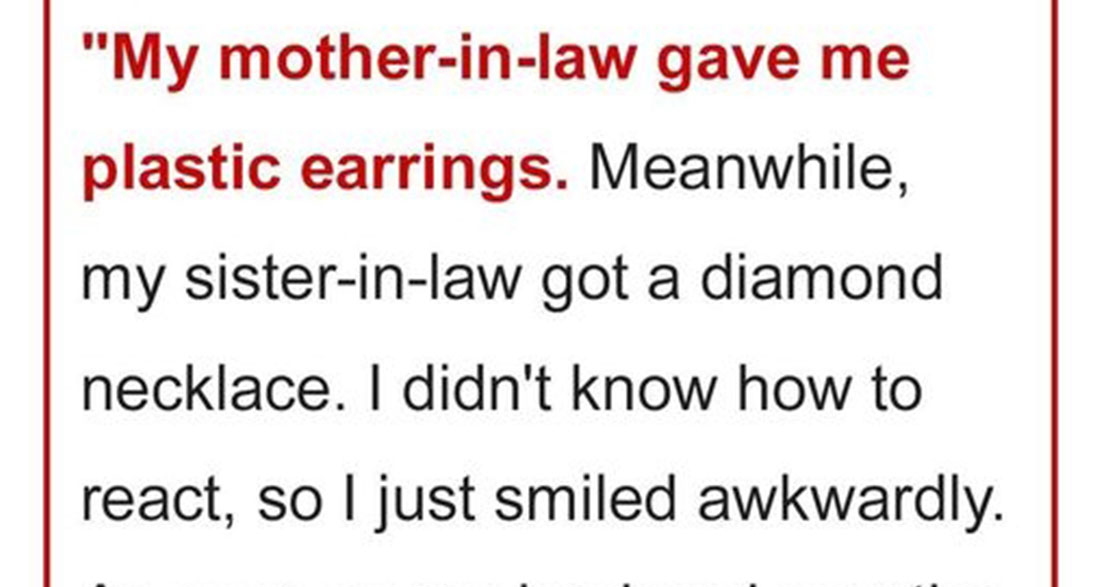My mother-in-law handed me a pair of cheap-looking plastic earrings, while my sister-in-law received a sparkling diamond necklace. I didn’t quite know what to say, so I forced a polite, awkward smile. But when my husband saw the earrings, he lost it. “HOW DARE YOU, MOM?” he shouted, clearly upset.
I tried to calm him down, but I couldn’t help but notice how different the gifts were. It was hard not to feel hurt, and it seemed pretty clear that my mother-in-law was playing favorites. But then, something completely unexpected happened.
Those plastic earrings were more than just a tacky gift. My mother-in-law, who loved adding a bit of drama to everything, later revealed that the earrings were part of an old family tradition—a strange little test.
Hidden inside the earrings was a tiny, intricately designed key. This key had been passed down through generations of daughters-in-law, and it opened a small chest that held something deeply important to the family.
Curious and a bit confused, we followed my mother-in-law down to a dusty, forgotten room in her basement. The room was filled with old antiques and family portraits, and in the center stood a small, ornate chest. I took the key from the earrings, and with a soft click, the chest opened. Inside, I found a beautifully preserved diary and a set of vintage gold jewelry.
The diary belonged to my husband’s great-grandmother. It was filled with her thoughts, dreams, and the challenges she faced as an immigrant. The gold jewelry was her only valuable possession, brought from her homeland and passed down through the family.
My mother-in-law explained that this heirloom, along with the responsibility of keeping the family’s legacy alive, was now mine.
In that moment, everything changed. What I had first thought was favoritism turned out to be a deeply meaningful family tradition. The real gift wasn’t the plastic earrings or even the vintage jewelry; it was the honor of being trusted with the family’s history.
The diamond necklace given to my sister-in-law was just a distraction, meant to keep the real tradition a secret until the right time. My sister-in-law understood and was gracious about it, and we all ended up laughing together over how odd yet meaningful it all was.
This experience brought me closer to my husband’s family. I began to see my mother-in-law differently—not as someone cold and materialistic, but as a protector of a rich family heritage. I spent hours reading the diary, learning about my husband’s ancestors, and feeling a deep connection I hadn’t felt before.
That day, I learned an important lesson: things aren’t always what they seem, and sometimes, the most valuable gifts come in the most unexpected forms. It was a humbling reminder of the power of tradition, respect for the past, and how even the quirkiest customs can bring a family closer together.
Share your thoughts in the comments down below!

